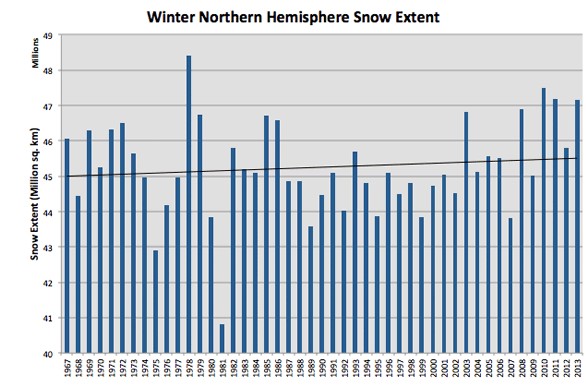Do people have an influence on the climate change?
- Climate change is a natural phenomenon which has occurred many times before on Earth, and depends on factors such as: solar activity, the properties of the surface of Earth, and composition of the atmosphere.
- There is no doubt that now another climate change takes place - during the last hundred years the average global temperature rose by 0.74°C[1], the sea level increased for the first time since the last ice age (over 20cm since 1870, and the pace of the increase is getting faster), glaciers melt and the snow cap of the Northern hemisphere decreases.
...Sources: IPCC4 2007; The Science of Climate Change (Australian Academy of Science) H/T Tom Nelson
Fact Check:
Sea levels have been rising naturally for the past 20,000 years since the peak of the last ice age, and at much, much faster rates in the past (up to 40 times faster than today). Sea level rise greatly decelerated about 8,000 years ago to rates similar to today:

Sea levels are currently rising 4 to 8 inches per century, and there is no acceleration, which means there is no evidence of a human influence on sea levels.
References finding either no acceleration or a deceleration of sea level rise during the 20th and 21st centuries:
Chen et al 2013
JM Gregory et al Journal of Climate 2012
M Beenstock et al 2013
NOAA 2005-2012 Sea Level Budget
Dean & Houston 2011 & 2013
Scafetta 2013
Holgate 2007
Boretti 2012
Morner 2004
Jevrejeva et al 2006 & 2008
Wöppelmann et al 2009
Roemmich et al 2013
IPCC 2007:
"no long-term acceleration of sea level has been identified using 20th-century data alone."
IPCC 2013:
"It is likely that GMSL [Global Mean Sea Level] rose between 1920 and 1950 at a rate comparable to that observed between 1993 and 2010"
...the authors find that sea level rise is a localized rather than global phenomenon, with 61 percent of tide gauge records demonstrating no change in sea levels, 4 percent showing a decrease, and a minority of 35 percent showing a rise. This implies relative sea level change is primarily related to subsidence or post-glacial rebound (land height changes) rather than melting ice or steric sea level changes (thermal expansion from warming). Steric sea level rise from thermal expansion turned negative in 2007. Sea levels during the last interglacial were 31 feet higher than the present, and Greenland 8 degrees C warmer than the present, without anthropogenic forcing. There is no evidence suggesting the current interglacial is any different.
The Northern Hemisphere snow cap has been increasing and hit record levels in 2012:
which was the opposite of predictions of the IPCC and its computer models, and a myth that continues to be perpetuated by sites such as "Skeptical Science."
see also:
UN'S WARSAW CLIMATE CONFERENCE MAKES DESPERATE JUNK SCIENCE SEA LEVEL CLAIM










0 comments:
Post a Comment